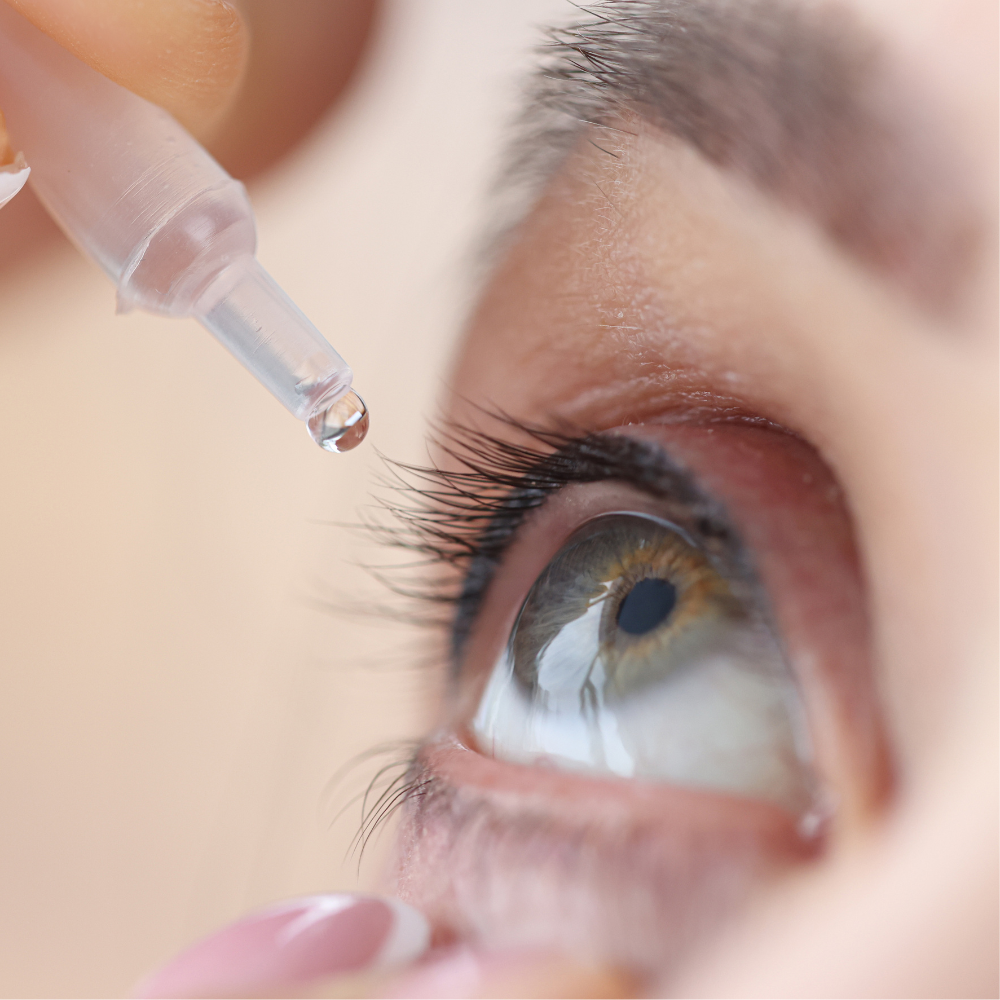 Dry eye syndrome is a common ocular condition that affects millions of people worldwide, causing discomfort and potentially impacting vision quality.
Dry eye syndrome is a common ocular condition that affects millions of people worldwide, causing discomfort and potentially impacting vision quality.
At Colorado Optometry, we specialize in diagnosing and treating dry eye syndrome to improve our patients’ ocular health and overall quality of life.
Symptoms of Dry Eye Syndrome
Dry eye symptoms can vary in severity but commonly include:
- Persistent dryness
- Itching or burning sensation
- Redness
- Sensitivity to light
- A gritty feeling in the eyes
- Blurred vision, especially during prolonged visual tasks
These symptoms may worsen in dry or windy climates and with extended screen use.
Causes of Dry Eye
Several factors contribute to the development of dry eye syndrome:
- Age: Dry eyes are more prevalent with age, as tear production tends to diminish over time.
- Gender: Women are more susceptible to dry eye syndrome, especially during hormonal changes such as pregnancy, menopause, or with the use of oral contraceptives.
- Environmental Factors: Dry climates, exposure to smoke, wind, and indoor heating or air conditioning can exacerbate dry eye symptoms.
- Medical Conditions: Certain systemic diseases like diabetes, rheumatoid arthritis, thyroid disorders, and autoimmune conditions (e.g., Sjögren’s syndrome) can contribute to dry eyes. Medications such as antihistamines, decongestants, antidepressants, and hormone replacement therapies can also reduce tear production or cause dry eyes as a side effect.
Diagnosis of Dry Eye Syndrome
Diagnosing dry eye syndrome involves a thorough evaluation by an eye care professional. This typically includes:
- Review of medical history, including symptoms and medications
- Comprehensive eye examination to assess tear production, tear quality, and ocular surface health
- Additional tests, such as tear osmolarity testing, tear breakup time (TBUT), and ocular surface staining with dyes like fluorescein and lissamine green, may be performed to further evaluate the severity and underlying causes of dry eye syndrome.
Treatment Options
Effective management of dry eye syndrome aims to alleviate symptoms, improve tear film stability, and promote ocular comfort. Treatment options may include:
- Artificial Tears: Lubricating eye drops are available over-the-counter to supplement natural tear production and alleviate dryness.
- Prescription Eye Drops: Medications such as cyclosporine (Restasis), lifitegrast (Xiidra), or corticosteroid eye drops may be prescribed to reduce inflammation and improve tear production.
- Nutritional Supplements: Omega-3 fatty acids found in fish oil supplements may help improve tear quality and reduce inflammation associated with dry eye syndrome.
- Lifestyle Modifications: Environmental changes like using a humidifier, avoiding exposure to smoke or dry air, and taking breaks during prolonged visual tasks can help manage dry eye symptoms.
- Advanced Therapies: For severe or persistent cases of dry eye syndrome, advanced treatments such as Intense Pulsed Light (IPL) therapy or Low Light Level Therapy (LLLT) may be recommended to address underlying gland dysfunction and inflammation.
Managing Dry Eye Syndrome Holistically
In addition to medical interventions, adopting a holistic approach to managing dry eye syndrome can contribute to long-term ocular health:
- Nutritional Guidance: Incorporating a diet rich in omega-3 fatty acids, antioxidants, and hydrating fluids can support tear production and maintain ocular surface health.
- Eye Care Habits: Practicing good eye hygiene, including regular eyelid cleaning and proper contact lens care, can minimize the risk of ocular surface irritation and inflammation.
- Annual Comprehensive Eye Examinations: Routine visits to your optometrist or ophthalmologist ensure timely detection and management of dry eye syndrome, optimizing treatment outcomes and preserving visual comfort.
Conclusion
Understanding the symptoms, causes, and treatment options for dry eye syndrome is essential for effectively managing this chronic condition. If you experience persistent dryness, irritation, or other symptoms associated with dry eyes, contact Colorado Optometry to schedule a comprehensive eye evaluation. Our experienced team is dedicated to providing personalized care and innovative treatments to enhance your ocular comfort and quality of life.






